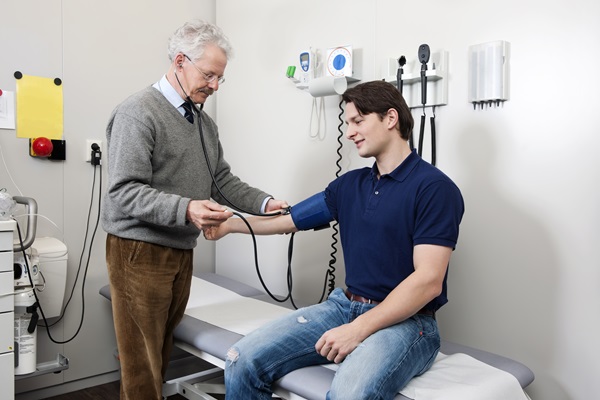What a Hematologist Is and When to See One

A hematologist is a health care professional that focuses on blood problems. Understanding what this doctor does is important if you want to get the right type of treatment for your condition. Spotting the situation that calls for this doctor is also ideal. Here are the details to consider if you want to know what a hematologist does and when the right time to visit with one is.
What a hematologist is
A hematologist can diagnose, manage, and treat ailments that target the lymphatic system, blood, and bone marrow. Diseases of the blood may turn out to be malignant or benign. The symptoms may be life-threatening or mild. It is always ideal to see this doctor if the primary doctor thinks that it is necessary.
Hematology often overlaps with oncology. This connection allows a hematologist to focus on noncancerous and cancerous conditions that target the different blood components. It also helps this health care professional treat the specific organs that supply the blood components. This doctor may have a split practice for patients of internal medicine and hematology.
When to see a hematologist
Seeing this doctor is necessary if the patient has blood-related disorders. The primary doctor will have limited experience, knowledge, and skills to help with these ailments. That is why a referral to a hematologist is important. A doctor who concentrates on blood can help the patient receive a more targeted treatment. Here are the blood conditions that this health care provider may treat:
- Myeloma is a type of cancer that targets the plasma cells and bone marrow. Studies show that more than half of the diagnosed patients are still alive five years after their diagnosis.
- Leukemia is the most common type of blood cancer. This is also the most common blood cancer in teens and children.
- Lymphoma is a cancer of the lymphatic system.
- Hemophilia is a blood disorder that prevents blood from clotting. It is also a hereditary ailment.
- Sickle cell anemia is a hereditary disorder that changes the shape of red blood cells.
- Anemia is a blood disease that occurs when the body does not have enough red blood cells. This deprives the body of oxygenated blood. The most common type of anemia is iron-deficiency anemia.
- Von Willebrand disease is a common bleeding disorder in the U.S.
- Thalassemia is a hereditary blood ailment that prevents the body from producing hemoglobin as well as red blood cells.
- Autoimmune disorders, such as rheumatoid vasculitis.
- Obstructive disorders, such as deep vein thrombosis.
After the referral
The patient will meet the hematologist. There will be a review of the patient’s medical history. The doctor will perform a physical exam. The patient will need to describe the current general health and symptoms. The doctor will review the results of the blood tests as well. The doctor will start to diagnose the patient’s condition.
Developing a custom-fit plan will come next. The doctor will work with the patient to create this plan. It may include blood transfusions, injections, and intravenous solutions. The patient must sign a consent form if there is a need for blood transfusions. The hematologist will explain the process, together with its benefits and risks.
For receiving blood products or blood
Determining the patient’s blood type will help pick out the matching blood or blood products. The laboratory technician will take a sample of the patient’s blood to find the right blood type. The blood bank will then test the sample to see if the blood type there matches the patient’s blood type. Cross-checking will take a while because getting the match will prevent a reaction. The hematologist may also prescribe medications to prevent reactions.
It will take about six hours to complete a transfusion. But the duration will depend on the amount of blood the patient needs. It also depends on the patient’s health. The nurse will keep an eye on the patient and the process.
If the patient has a port, the transfusion and medications will go through it. The patient must wear a button-down shirt so that the area will remain sterile and accessible. A hospital gown can make the transfusion easier and more comfortable. The nurse will start an IV line in the patient’s arm.
Your hematologist can help improve your condition
Getting the right help at the right time can give you a good chance at better health. Seeing your primary doctor will likely be the way to meet your hematologist. Only then will you find out more about your current condition. Working with your hematologist can help improve your health.
Get more information about Lindenberg Cancer & Hematology Center in Marlton at https://lindenbergcancer.com.
Check out what others are saying about our services on Yelp: Hematologist in Marlton, NJ.
Recent Posts
Chemotherapy is an effective cancer treatment but one that is taxing on the body. Therefore, searching for "chemotherapy near me" should help you find a conveniently located facility to make receiving this treatment a little easier. Lindenberg Cancer & Hematology Center is located in the Marlton area. Our team will strive to help you through…
Our cancer center aims to alleviate the stress and burden often associated with cancer care. Unlike traditional oncology offices, we offer comprehensive care under one roof. This means you and your loved ones can access all your care needs without the added stress of moving around the city or state to consult multiple professionals. We…
Acute lymphocytic leukemia treatment comprises various methods, ranging in invasiveness. We determine the most effective method for you by assessing several factors, such as your age, cancer subtype, its stage, and what your body is able to handle. Take a look at the various treatment options our oncologist may employ to help get you into…
Chemotherapy, commonly known as "chemo," is a lung cancer treatment that uses anti-cancer drugs to kill cancer cells in the lungs and other parts of the body. It can shrink or stabilize the tumor, target leftover cancer cells after surgery, or alleviate symptoms. A chemotherapy plan is personalized to each patient's unique needs and circumstances,…


